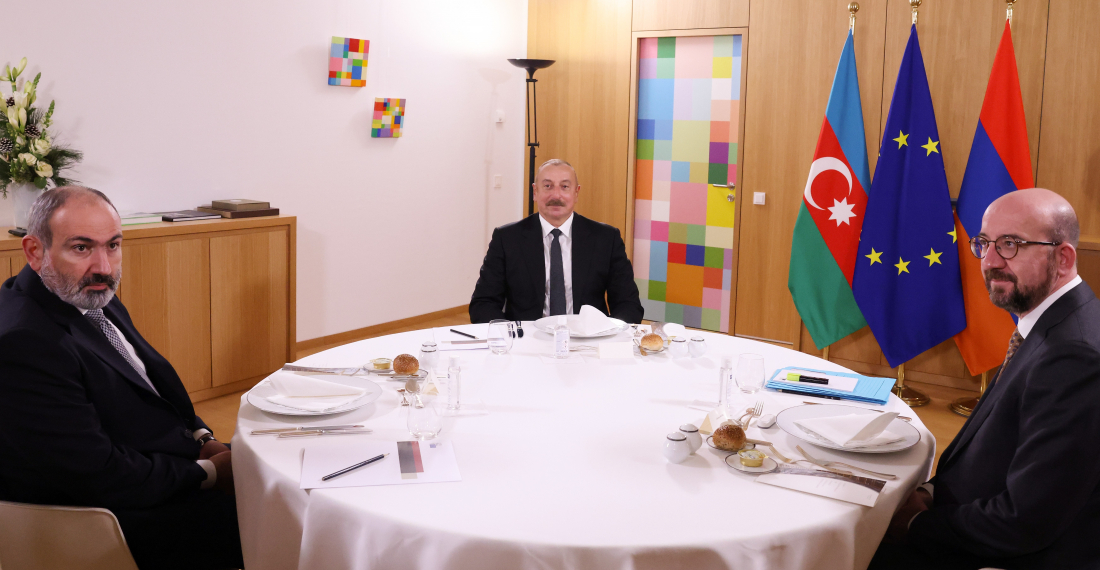Armenian prime minister, Nikol Pashinyan, and Azerbaijani president, Ilham Aliyev, will meet in Brussels on Sunday (22 May), together with the president of the European Council, Charles Michel. Michel will meet separately with the two leaders before the trilateral meeting.
The meeting, builds on Michel’s active involvement in the Armenian-Azerbaijan peace process, and will represent the third encounter in the last six months, with the most recent taking place on 6 April. During the last meeting, the sides agreed to establish a working group for the delimitation and demarcation of the shared border, which was supposed to meet by the end of April, but that date came and went without any signs of the talks taking place. The committee was then supposed to meet earlier this week, but once again, no meeting was held. Armenian foreign minister, Ararat Mirzoyan said on Wednesday that there are still some issues that needed to be ironed out, but appeared hopeful that negotiations would proceed soon.
Aliyev then stated during a press conference with his Lithuanian counterpart that the delays have been down to cancellations from Yerevan: “Azerbaijan accepted the offer and we were ready to send out a delegation. However, on the last day, on 29 April, Armenia cancelled the agreed meeting. This is very disappointing. Even more disappointing was Armenia's refusal to hold a different meeting on the border issue on 7-11 May, based on Armenia's initial proposal. So we are waiting for new dates from Armenia to start work”.
This was quickly denied by the spokesperson for the Armenian Foreign Ministry, Vahan Hunanyan, who was clear that Armenia was ready to proceed with the commissions. The following day, the Secretary of Armenia's Security Council, Armen Grigoryan, said that Armenia had formed the commission with Azerbaijan, adding that a statement would be published in due course.
There is optimism that the peace process is heading in the right direction, and the increasing frequency of diplomatic contacts between representatives from Baku and Yerevan is a positive sign that the political will exists to agree on a peace deal. However, these meetings, while symbolically important, will need to start yielding tangible results soon if real progress is to be made.
Speaking on Friday morning at an event in Yerevan, Armenian prime minister Nikol Pashinyan said that his government will deliver on its promise of peace for Armenia, in the same way it had kept its word about establishing democracy in the country. Pashinyan called on all political forces to rally around this mission.



